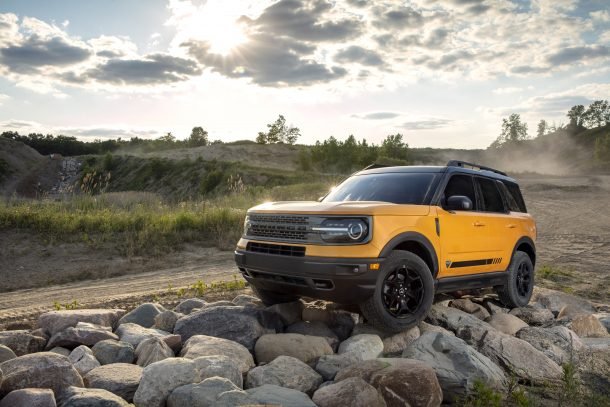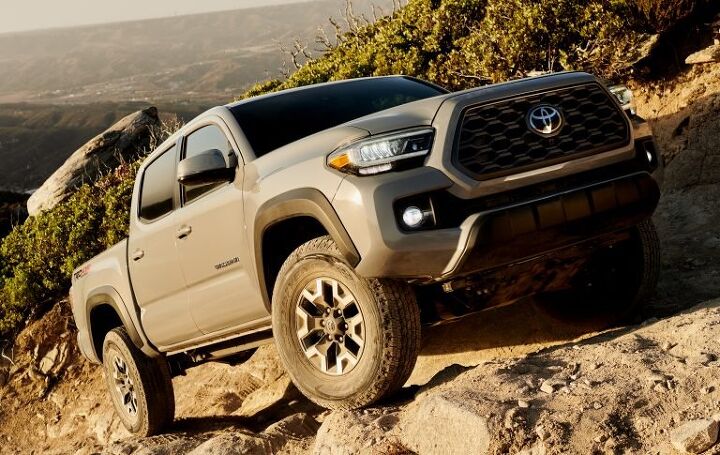#Mexico
UAW Annoyed With GM's Mexican EVs
General Motors has decided its fifth electric vehicle facility should be in Mexico and has set aside $1 billion for its complex in Ramos Arizpe, Coahuila, Mexico. While a portion of the funds will go toward a new paint shop, the manufacturer also said the money would be used to prepare the site for EV and battery production, angering the United Auto Workers (UAW).
“This is a slap in the face for not only UAW members and their families,” stated UAW Vice President Terry Dittes. “General Motors automobiles made in Mexico are sold in the United States and should be made right here, employing American workers.”
Corvette Production Stalled Again as Mexican Suppliers Deal With COVID
General Motors is stopping production of the Chevrolet Corvette for the rest of the week after Mexican suppliers once again found themselves having to contend with the pandemic. While Johnson & Johnson’s Janssen unit has been given the go ahead to begin late stage trials for its coronavirus vaccine in Mexico, the nation has introduced new restrictions as the country reported a spike in infections last month.
On Wednesday, GM spokesman David Barnas informed The Detroit News that Bowling Green Assembly in Kentucky will be closed for Veterans Day but remain closed through the weekend due to supply chain issues. The manufacturer does not see this as turning into a prolonged idle period for the Corvette, but we’re wondering about other models — and not just those manufactured by General Motors. While Mexican suppliers are supposed to rebound swiftly, Europe has also instituted new lockdowns that could affect supply chains if they’re extended.
Another Mexican Headache for Ford
As both the United States and the country to its south grapple with the challenge of returning to normal amid a pandemic, Ford Motor Company faces another problem resulting from punting production over the Rio Grande.
Just as local laws aimed at slowing the spread of the coronavirus can stem the flow of essential engines, local protests can cut off the flow of everything.
Amid Losses, Daimler Rethinks North American-made Sedans
Domestic automakers have largely rid their North American facilities of sedans, so why shouldn’t foreign manufacturers? That’s what Mercedes-Benz parent Daimler plans to do after announcing a second-quarter loss of $1.9 billion.
While the quarterly loss was less than analysts expected, financial and sales pressures brought on by the coronavirus pandemic has led the automaker to cull car production on this side of the pond.
Coronavirus Still a 'Thing' for Volkswagen As Mexican Facilities Remain Shuttered
Don’t let that beer in your hand (and the public patio surrounding you)fool you into believing everything’s normal — the novel coronavirus is still causing headaches, including for automakers attempting to return to full-scale production.
For Volkswagen, it means the plants supplying U.S. dealers with strong-selling models will remain offline for a while longer, complicating the return to normalcy.
Mexico to the Rescue As Suppliers Resume Operations
Mexico is attempting to accelerate parts production to ensure North American automakers have enough components on hand to stay operational. The response to the pandemic saw manufacturing stalled worldwide as governments assessed whether or not we’d soon be living through a plague of biblical proportions. While fate decreed a repeat of the Black Death would not be necessary, untold damage resulted in numerous business sectors.
The automotive industry hardly went unscathed. Lockdowns stopped sales in many markets for months and plunged supply chains into turmoil as OEMs shut down to ensure staff were helping to “flatten the curve.” With the public’s interest shifting rapidly away from coronavirus mandates toward demonstrations about police brutality and racial justice, or simply devolving into riots because people are pretty angry about how poorly 2020 is playing out, suppliers and automakers are gradually moving back to more normal production schedules.
This has been easier said than done. But it is being done, and that’s the important thing.
GM Gets the Go-ahead for a Mexican Restart, but Production Hinges on Suppliers
General Motors received good news on Thursday, earning approval from the Mexican government to fire up its extensive manufacturing presence in that country after weeks of coronavirus downtime.
The green light to resume production will help the automaker restock its all-important pickup shelves, though assembly won’t turn on a dime.
Show Your Papers: Mexican Auto Factories Allowed to Restart With Proper Documents
Mexico spent plenty of time discussing the phased reopening of automotive plants last week. The presumption was that the nation would have to establish guidelines for industrial work zones that would allow some to resume production after May 18th, with timing coinciding with U.S. facilities that will be in desperate need of parts and vehicles. However, last minute changes left everyone wildly confused.
On Thursday, the Mexican government said the industrial sector wouldn’t be eligible for reopening until June 1st. The following day, it explained that the date didn’t actually mean much for automotive outfits, adding that companies could reopen at any time if they verified an adherence to new safety protocols. Thanks to another announcement over the weekend, most of the residual confusion has subsidized. Mexican facilities can reopen, provided they have the correct paperwork on file.
Poised for Pickups: Mexican Restart Can't Come Soon Enough for GM
Production at General Motors’ Mexican assembly plants could start up next week, following a go-ahead from the country’s leadership to resume factory activity. The faster GM’s able to come back online south of the Rio Grande, the better.
In an earnings briefing last week, GM, like its rival Fiat Chrysler, pointed to a declining inventory of lucrative pickups — a segment that proved extremely resilient over the past two months, even during the depths of the coronavirus lockdown. With U.S. plants resuming work on Monday, a concurrent Mexican restart is what the company needs.
Start Me Up: As Industry Slides Into Gear, U.S. Requests Industrial Assistance From Mexico
Mexico is considering reopening factories after May 18th, now that automakers and the U.S. government have requested it resume production at plants serving the American market. With supply chains needing time to catch up, vehicle assembly will be precarious until parts can be reliably sourced. And Mexico is an essential part of that industrial recovery plan, necessitating some light coordination with the United States.
Despite seeing a spike in new COVID infections, Mexico released a plan to ease restrictions on Wednesday. Making sure U.S. manufacturers have what they need has been incorporated into that strategy, with a few conditions. While industrial employees will soon head back to work, Mexico made no assurances that it will prioritize supplying the rest of North America with automobiles or their components.
Mexican Production Under Threat As China Struggles to Come Back Online
Mexico, the birthplace of many lower-end automotive offerings, could see plants go dark by the end of the month if the global supply chain doesn’t sort itself out. Specifically, that means China, a prolific producer of parts.
Production in that country has been stymied since major lockdowns enacted in late January to halt the spread of the emerging coronavirus pandemic left factories idle. And while the country has begun relaxing measures that kept workers away from plants, China’s manufacturing heartland has been slow to rebound.
Toyota Tacoma to Hitch a Ride From the Lone Star State
The perennially popular Toyota Tacoma will move all of its assembly south of the Rio Grande under a recently announced production switch-up.
When the ancient Sequoia full-size SUV enters a new generation, and along with it the Tundra pickup, it won’t stay at its present Princeton, Indiana home. Toyota plans to move Sequoia production southward to Texas, punting Tacoma output to a country that’s no stranger to the midsize pickup.
GM News: Strike Enters Week 6, a Model the UAW Hates Grinds to a Halt, and the Return of Hummer?
With last week’s tentative agreement between the United Auto Workers and General Motors, the end of the now six-week-long strike seemed closer than ever. GM hourly workers in the U.S. have until the end of the week to decide whether to approve the contract deal; if it gets the thumbs-up, the strike’s over.
Amid all of this labor news came a couple of tidbits, both of which stand to make the UAW happy. The first involves a resurrected nameplate built in Mexico, the other, a defunct GM brand that didn’t survive the company’s recession-era bankruptcy.
Mazda CX-30 Confirmed for Mexican Production
Mazda’s Salamanca plant is adding the CX-30 to its production line, ensuring its cars-and-crossovers strategy launches as planned. With the Mexican facility already manufacturing the Mazda3, it’s not a shock to see the compact added to the factory lineup as the pair utilize the same platform. In fact, Salamanca is already undergoing retooling to make sure it can incorporate the CX-30 and there were swirling rumors that the company’s official factory announcement would happen sometime this month.
While no formal announcement has been made, the company confirmed the move with Automotive News on Wednesday. Miguel Barbeyto, president of Mazda Mexico, said the facility had been selected partially due to the CX-30’s role as a global product. Mexico has free-trade agreements with numerous nations that Mazda believes will help it efficiently distribute Mexican-made product throughout Europe and North/South America.
It's Monday, and Mexican Tariffs Are Back On the Table
After the United States and Mexico signed an agreement to stem the flow of illegal migrants from Central America across their shared border, President Donald Trump’s latest tariff proposal was taken off the table. You could almost hear the sphincters of every global automaker collectively unclench in that moment. Unfortunately, their rectal vacation appears to have been short lived.
“We have fully signed and documented another very important part of the Immigration and Security deal with Mexico, one that the U.S. has been asking about getting for many years. It will be revealed in the not too distant future and will need a vote by Mexico’s legislative body,” Trump tweeted on Monday. “We do not anticipate a problem with the vote but, if for any reason the approval is not forthcoming, tariffs will be reinstated!”





























Recent Comments